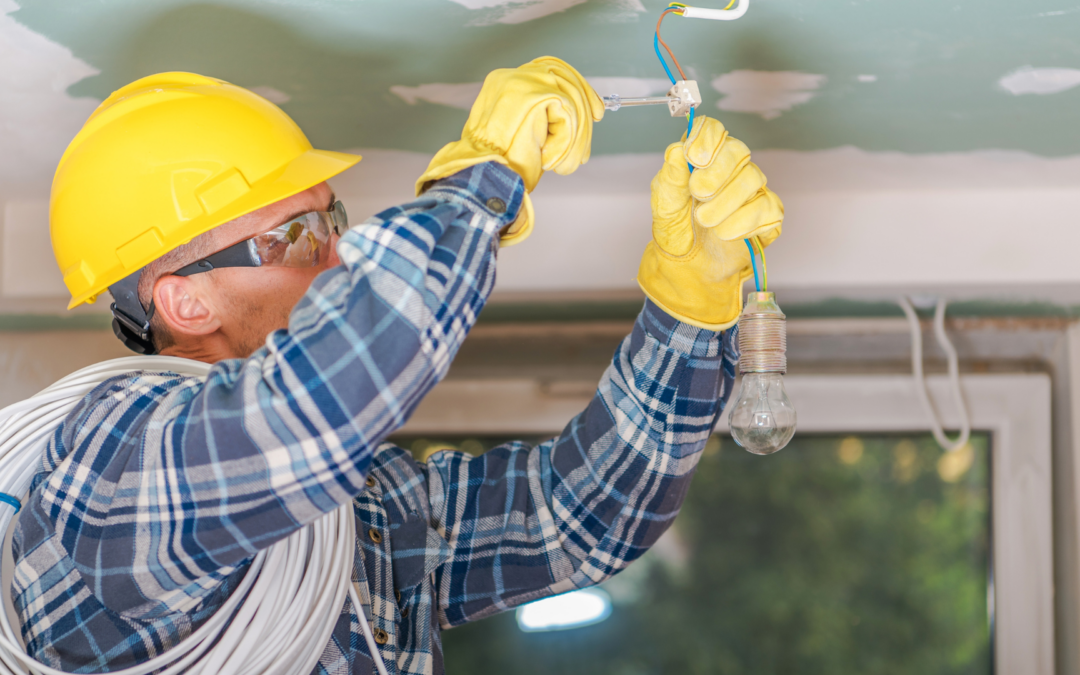Proper electrical maintenance and safety practices are crucial for ensuring the safety of your property, its occupants, and preventing electrical hazards. As a property manager, it is essential to prioritize electrical maintenance to prevent electrical failures, fires, and potential injuries. In this blog, we will discuss some best practices for electrical maintenance and safety.
Regular Electrical Inspections: Schedule regular electrical inspections conducted by qualified professionals to identify potential issues or hazards. Inspections can help detect faulty wiring, outdated components, overloaded circuits, or other electrical problems that may require attention. Follow up on the recommendations provided by the inspectors promptly.
Keep Electrical Panels Accessible and Organized: Maintain clear access to electrical panels at all times. Ensure that panels are not blocked by stored items or obstructed by equipment. Keep the panels organized by clearly labeling circuits and maintaining a directory for easy identification.
Perform Routine Maintenance: Develop a routine maintenance schedule for electrical components. This includes checking switches, outlets, and light fixtures for any signs of damage, wear, or overheating. Replace or repair damaged components promptly to prevent potential hazards.
Test Ground Fault Circuit Interrupters (GFCIs) and Arc Fault Circuit Interrupters (AFCIs): GFCIs and AFCIs are crucial safety devices that protect against electric shock and fire hazards, respectively. Regularly test these devices to ensure they are functioning properly. Press the “test” button on GFCIs and follow the manufacturer’s instructions for testing AFCIs.
Practice Proper Cord Management: Inspect all cords and cables regularly for fraying, loose connections, or exposed wires. Replace damaged cords immediately. Avoid running cords under carpets or rugs and do not overload extension cords or outlets. Encourage the use of surge protectors to protect sensitive electronic equipment.
Educate Tenants and Staff on Electrical Safety: Promote electrical safety by educating tenants and staff about potential hazards and safe practices. Provide guidelines on the proper use of electrical equipment, emphasizing the importance of not tampering with electrical systems or attempting DIY electrical repairs. Encourage reporting of any electrical issues or abnormalities promptly
Conduct Regular Fire Drills and Emergency Preparedness: Incorporate electrical safety into your property’s emergency preparedness plan. Conduct regular fire drills and ensure that all occupants know the locations of fire exits, fire extinguishers, and emergency lighting. Test smoke detectors and ensure they are in working order.
Engage Qualified Professionals: When it comes to electrical work, always engage qualified and licensed professionals. Ensure that any repairs, installations, or modifications are carried out by experienced electricians who adhere to safety standards and local building codes.
Conclusion: Maintaining electrical systems and promoting electrical safety is essential for property managers. By implementing these best practices – regular inspections, accessibility and organization of electrical panels, routine maintenance, testing safety devices, proper cord management, tenant and staff education, emergency preparedness, and engaging qualified professionals – property managers can mitigate electrical hazards, enhance safety, and protect their property and occupants. Prioritizing electrical maintenance and safety not only ensures compliance with regulations but also provides peace of mind and a secure environment for everyone in the property.

